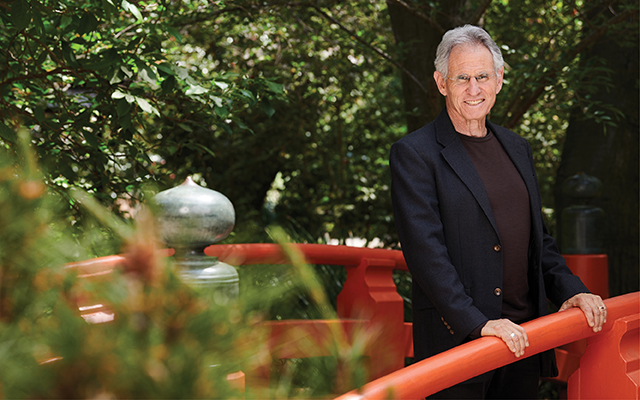I was talking travel the other day with The Commissioner, one of my septuagenarian golfing pals, who advised me to schedule my bucket-list trips before it was too late. “There are things you can do in your 60s that you won’t be able to do in your 70s.”
This struck me as a fairly pessimistic view of the future, especially coming from a guy who’s generally pretty upbeat. But he’s just speaking from experience. The joints stiffen, the back seizes, the body — and mind — rebels as you travel beyond middle age. It’s just the way it goes.
And it can create a sort of waiting game among the senior set. If you believe that ailments will gradually overtake your ability to function, every small malady can get you thinking of the major maladies yet to arrive. I’m not immune to this behavior. Despite my generally good health, I’m well aware of the many ways in which my body is gradually deteriorating. I don’t spend much time or energy anticipating the next sign of decay, but I can’t say it never crosses my mind.
Ten years ago, I was playing competitive basketball every week. Seven years ago, my aching knees and slow-twitch muscles convinced me to give that up in favor of tennis. Five years ago, I gave that up in favor of the less-strenuous demands of golf. I can now imagine a future in which my sporting endeavors are limited to the occasional game of bocce ball or a rousing shuffleboard match. That’s how it goes.
There’s a popular school of thought that preaches the gospel of positivity as a way to cope with the vagaries of aging, and it’s backed by plenty of research. A 2016 study in the Journals of Gerontology, for example, suggests that maintaining an upbeat attitude may reduce inflammation and extend lifespan.
The Commissioner calls this an “attitude of gratitude,” and I don’t doubt that it can help geezers avoid dwelling on the latest evidence of their eventual demise. But I’ve always found that positivity takes us only so far. Sometimes we need to embrace the negative as well.
That’s the conclusion Brett Ford and his colleagues reached in a 2017 study published in the Journal of Personality and Social Psychology. “It turns out that how we approach our own negative emotional reactions is really important for our overall well-being,” Ford told Medical News Today. “People who accept these emotions without judging or trying to change them are able to cope with their stress more successfully.”
Stop “Catastrophizing”
It’s almost become a cliché these days, but that’s what mindfulness is all about. By greeting each physical and mental ailment without judgment as they arise, we can respond with equanimity rather than anxiety. That pain I’ve lately been noticing in my left ankle, for instance, may portend some gimpiness in the future, but that future has not arrived and for the moment it’s simply a sensation. It’s not pleasing, but it doesn’t have to be alarming — it’s just a sensation.
And when we understand that, we can avoid what Buddhist teacher Ezra Bayda calls “catastrophizing” the situation. “If we get a pain in the belly that lasts for a few days, we may start believing we have cancer,” Bayda writes in Tricycle. “To counter such thinking, we can deploy a simple phrase to remind ourselves that these imagined future ailments are ‘not happening now.’”
When we visualize our twilight years dominated by surgeons, hospitals, and nursing homes, Bayda notes, we can overlook how well we’re generally functioning. “In the case of that same belly ache, we may focus all of our attention on how our pain bothers us, rather than how our eyes, ears, legs, and all the rest work fine.”
There’s some gratitude involved here, but it’s mostly about grasping reality instead of clinging to fear. It’s not always simple; like anything else, it’s a journey — one that’s worth beginning sooner rather than later.




This Post Has 0 Comments